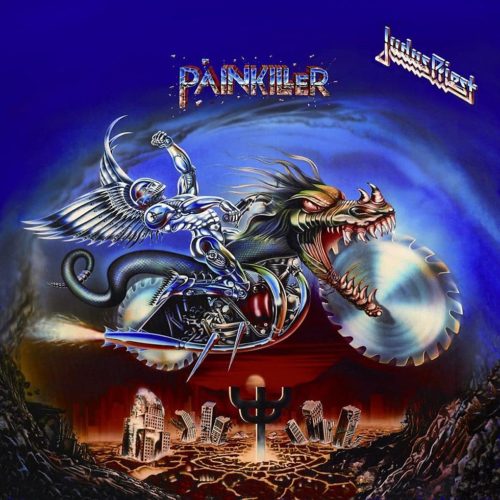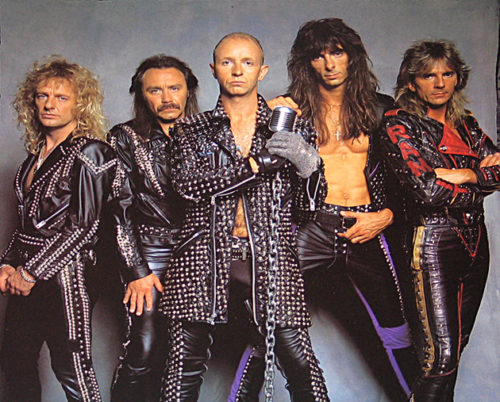 Overrated. That’s the most recent Twitter post I saw about Painkiller, the specimen of metallic glory that is thirty years olde now. Listen, this album is only overrated if you rank it at the very top of Judas Priest’s long and glorious discography; however, it is most certainly amongst their best albums, and amongst the best that the heavy metalverse had to offer in 1990. And as 2020 draws to a slow and painful close, we can all use some Painkiller to help us get through these last few weeks. Let’s take a look back at this album, and see just why it deserves some extra attention.
Overrated. That’s the most recent Twitter post I saw about Painkiller, the specimen of metallic glory that is thirty years olde now. Listen, this album is only overrated if you rank it at the very top of Judas Priest’s long and glorious discography; however, it is most certainly amongst their best albums, and amongst the best that the heavy metalverse had to offer in 1990. And as 2020 draws to a slow and painful close, we can all use some Painkiller to help us get through these last few weeks. Let’s take a look back at this album, and see just why it deserves some extra attention.
Judas Priest’s career arc is more like a roller coaster. From the highs of Sad Wings of Destiny to the lows of Point of Entry,1 from the highs of Defenders of the Faith2 to the lows of Ram it Down,3 consistency has not been the Priest’s strong suit. And after Ram it Down, a minor musical and production atrocity, expectations and hopes were at an all-time low amongst us fervent fans. How shocking, then, to press the play lever on my cassette deck back in 1990 and be absolutely destroyed by Scott Travis’s opening salvo. The band has tried to be this heavy on earlier songs – “Screaming for Vengeance” and “Ram it Down” are good examples – but they never quite succeeded like they did on “Painkiller.” The entire song is a metal meltdown,4 and the breakdown four and a half minutes in is, well, killer.
Every song on Painkiller is worthy of inclusion on the album; the lyrics, maybe not, but hey, we are used to Judas Priest’s silly lyrics about beasts and evil and evil beasts and leather and weapons and more. It comes with the territory. But the band attacks with abandon on up-tempo songs like “Leather Rebel” and “Metal Meltdown.” Arena-friendly anthems are still here, but take a back seat to the speed and heft. Halford relies more on his shrieking head range than his S&M range, giving the entire album a very malevolent feel. Overall the sound is thickened up considerably by Don Airey, who played much of the bass on his Moog as well, and all keyboards, most effective on the excellent “Touch of Evil,”5 which warps the riff from “American Woman” and, with the help of Airey, turns it into something massively sinister.

Painkiller is an album of firsts and lasts. It was the first album with Scott Travis on the drum stool, and his modern, aggressive playing is a huge part of Painkiller’s success. It was the first album produced by the late Chris Tsangarides instead of Tom Allom, who had been around since the Killing Machine/Hell Bent for Leather days, and that relationship was obviously stagnating. Tsangarides pushes the album and the band beyond previous efforts. That being said, Tsangarides was unable to overcome the fact that K.K. Downing and Glenn Tipton possess the worst guitar tones in the world, a blight on every Judas Priest album since Screaming for Vengeance. It would also end up being Halford’s last album fronting the band for fifteen years; he didn’t return to the fold until 2005’s Angel of Retribution.
Judas Priest are perhaps best known for metal anthems like “You’ve Got Another Thing Comin’” and “Living After Midnight,” but when one wants to play some unbridled face-melting metal, Painkiller is the album to turn to. The band has not hit this hard or this effectively since, although 2018’s Firepower was their most worthy attempt. Painkiller should be essential listening for all fans of heavy metal.

















